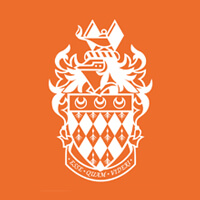fees waived
Ecology and Conservation, BSc (Hons), with industry placement
Royal Holloway, University of London, United Kingdom
Subject ranking
UK / The Times 20th
UK / Times 25th
UK / CUG 27th
Costs
food & rentS$24.4K / year
Entry requirements
Scholarships
Limited quantity
Information
Code
Intakes
Website (External)
Programmes
Information
Duration
2028
Ecological considerations factor among the key concerns facing our planet today. The decline of bee populations, for example, poses a real threat to agricultural crop yields and the health of flowering plants, and groundbreaking research at Royal Holloway, University of London is helping to uncover the reasons behind this crisis.Studying Ecology and Conservation at Royal Holloway will teach you the fundamental principles of how plants and animals interact with each other and the wider environment, applying both theoretical and practical tools to understand diverse aspects of ecology including both terrestrial and aquatic ecosystems, behavioural ecology and conservation.The first year of Ecology and Conservation provides a strong foundation in plant, animal and ecosystem topics, including vertebrate evolution and diversity, plant evolution, form and function, cell biology, genetics and biomes and ecosystems. Acquiring skills in biological data analysis and practical field ecology form a key part of the second year, alongside studies in evolution, invertebrate biology, and insects, plants and fungi. You can also choose to study animal behaviour, microbiology, or to attend the residential field course on marine biology. The final year includes the study of population and community ecology, and marine ecology and biodiversity. There are options to study conservation biology, evolutionary ecology, entomology, extreme animal physiology, circadian biology, as well as to take part in the overseas field course that examines Mediterranean conservation and ecology. This flexible programme allows you to tailor your learning in years 2 and 4, to suit your own interests.Our biodiverse campus is in easy reach of sites of special scientific interest including Windsor Great Park, Box Hill and Chobham Common, providing the opportunity for rewarding field work and independent study. You will gain practical experience across all four years of the degree, with many laboratory-based or field-based practicals in years 1 and 2, and an individual research project in year 4. The project can involve laboratory, field, or computer-based approaches, but whichever project you choose, you will join our renowned research culture.Our year in industry degrees are highly valued by employers and they give you the chance to gain first-hand experience of the world of work and to apply your learning to real-world scenarios. Your year in industry will start at the end of year 2.
- Understand how ecological principles can be used to tackle conservation challenges.
- Learn the principles of how plants and animals interact with each other and the wider environment.
- Take part in an overseas field course that examines Mediterranean conservation and ecology.
A local representative of Royal Holloway, University of London in Singapore is available online to assist you with enquiries about this course.

